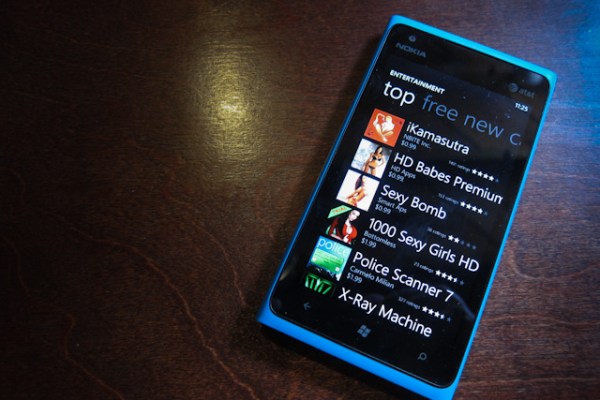Microsoft’s rebooted mobile OS, Windows Phone 8, arrives in a matter of weeks — so it’s a case of Windows Phone 7 is dead, long live Windows Phone 8 right? Not so fast. WP8 is certainly Microsoft’s new weapon of choice for competing in the smartphone space — with no further OS updates planned for WP7 beyond the customizable homescreen in the 7.8 release — but the older of the two WP siblings could still have a vital role to play in helping Redmond gain significant marketshare.
How significant a share? Analyst house Gartner believes Windows Phone will move into joint second place, with Apple’s iOS, by 2016 — with each taking around a fifth of the smartphone market (and Android continuing to gobble the lion’s share).
Predicting so far ahead in such a fast-paced space as mobile is super tricky to say the least. Who knows who — or what — will have arrived to disrupt the market by then? But what is interesting about the prediction is Gartner is factoring in an extended and expanded role for the apparently defunct WP7.
The analyst is calculating Microsoft’s mobile marketshare based on the assumption that Nokia — the most bridge-burning committed Windows Phone OEM (even if HTC is suddenly claiming its ‘the new face of Windows Phone’) — will expand its use of WP7 to offer mid market handsets that are priced cheaply enough to compete with Android’s low-end reach, thereby fuelling Windows Phone’s growth.
The wider point here is that much of the growth in the smartphone market will come from the low end in the coming years as users of basic feature phones upgrade to affordable smartphones.
In this scenario, the rise of Windows Phone is not about shiny high-end WP8 smartphones persuading buyers to ditch Android or iOS — but rather budget devices being sold by the truckload to mobile users in emerging markets.
Or, in other words, it’s phones with even fewer frills than the budget Nokia Lumia 610, rather than top of the line flagships such as Nokia’s forthcoming Lumia 920, that will be doing the heavy lifting for Windows Phone.
“Nokia needs the volumex,” Gartner analyst Roberta Cozza tells TechCrunch. “Because for them revenue coming from hardware is key so at the moment with [their legacy OS] Symbian declining very rapidly, the lower end of Android is eating into what Symbian used to cover so they need something there.
“Nokia tried with the [Lumia] 610 in part but it’s not gone that low [in price] yet, and I think that by the end of 2013 they will have to grow the portfolio and include more mid-tier devices — and I think they could do it with Microsoft.”
“Obviously Microsoft and Nokia have a kind of special relationship — Microsoft will have to be ready to allow Nokia to work on the overall device in order to reach those price points but our assumption has been driven by the fact that we believe that that can happen,” Cozza adds. “In some of these emerging markets smartphone applications are not really a key consideration — it’s just to make and put into the market a device with an OS that can scale down to those prices.”
Cozza doesn’t believe a low-end role for WP7 means it will avoid the scrapheap indefinitely — but plugging a gap in Nokia’s portfolio gives it a few more years in play, alongside WP8. “It’s just an interim thing — because WP8 will not [currently] scale down, it’s going to take some time to make it scale down to certain price points and Nokia cannot really do it with that platform because it requires high end specs,” she notes.
However there’s a big problem with this picture: Nokia already has a mobile OS for emerging markets — the Series 40 OS — which it’s using on its Asha series of low end quasi-smartphones. So instead of turning to WP7 to expand its volumes, Nokia could focus on further developing Series 40.
Which way Nokia chooses to jump — WP7 or Series 40 — is “really very unclear at the moment”, says Cozza, although she also points out that the investment of time and money required to maintain OS autonomy may be a luxury Nokia can no longer afford. The once Mighty Finn has shed considerable headcount, expertise and assets since signing up to Windows Phone — and is running a huge operating loss.
If Microsoft is going to achieve its goal of gaining significant smartphone marketshare in the coming years, it looks like Ballmer and Co. are more dependent on Nokia than ever. You could say Steve Ballmer needs to point at Stephen Elop and say: ‘I love that company’.

